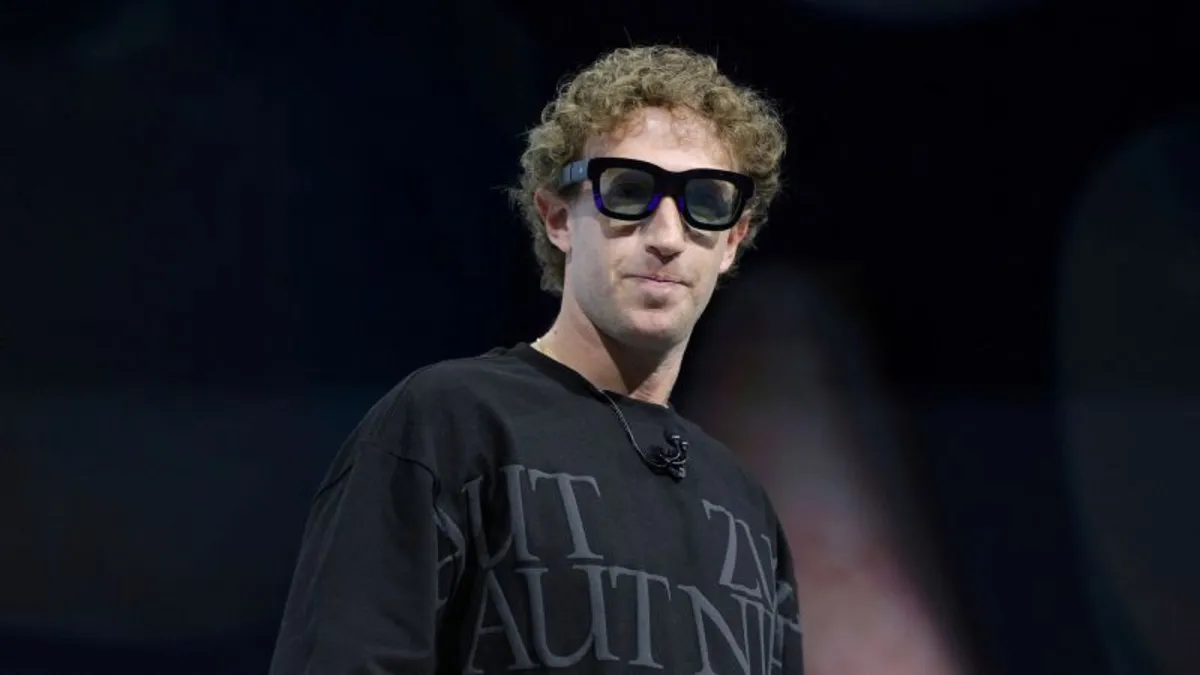
In a bold statement during Meta's earnings call in July, CEO Mark Zuckerberg suggested that individuals who do not utilize smart glasses may eventually face a “significant cognitive disadvantage” compared to those who do. This ambitious vision for Meta’s future is anticipated to gain clarity during the upcoming Meta Connect conference, where the tech giant is expected to unveil its next steps and introduce innovative products.
Reports indicate that Meta is poised to launch a new pair of AI-powered smart glasses to succeed its relatively successful Ray-Ban spectacles. These glasses are designed to analyze the wearer’s environment and provide insightful answers about their surroundings. This development marks a highlight in Meta’s efforts to embrace disruptive technologies, following its earlier missteps in the smartphone market during the early 2000s. In 2021, the company aimed to refocus its brand around the metaverse, an initiative that did not reshape the internet as Zuckerberg had envisioned.
Despite earlier challenges, Meta's smart glasses are resonating with consumers. In July, EssilorLuxottica, the parent company of Ray-Ban, reported that revenue from Meta’s glasses had more than tripled year-over-year. Market research suggests that Meta currently holds the title of the leading smart glasses brand. While it may take time for smart glasses to achieve the same ubiquity as smartphones, they present an opportunity for Meta to connect directly with consumers, thus reducing its dependency on traditional smartphones.
As Meta aspires to cultivate “personal superintelligence” — a term used by Zuckerberg to describe AI that deeply understands individual users and assists them in achieving their goals — the competition is intensifying. Tech giants such as Samsung, Google, and Snap are also preparing to launch new smart glasses. Additionally, Amazon is reportedly developing glasses featuring augmented reality (AR), a technology that superimposes computer graphics onto real-world environments.
In a partnership established in 2021, Meta and Ray-Ban released the Ray-Ban Stories, glasses intended for hands-free photo and video capture. However, Meta is not alone in exploring the potential of smart glasses; competitors like Snap and Amazon, along with various smaller tech firms, have also released their own devices for similar functionalities. Google was among the pioneers with Google Glass in 2013, yet its initial attempt faltered due to factors like high costs and limited functionality.
The new wave of smart glasses is expected to differ significantly from earlier models, primarily due to technological advancements in components such as processors, batteries, and cameras, which have become smaller and more cost-effective. This evolution, along with improvements in AI, is making smart glasses more practical. For instance, with Meta’s eyewear, users can inquire about the spiciness of a pepper or get translations of signs using the AI assistant.
Meta’s upcoming smart glasses are rumored to feature a display for viewing applications and notifications, alongside a wristband for gesture control. These enhancements are likely to be unveiled at the Connect conference, which will focus on the “latest innovations in AI glasses.” Last year, the company hinted at a prototype for its Orion augmented reality glasses, although Meta has not confirmed any announcements for this week's event.
Currently, the existing Ray-Ban Meta glasses do not provide visual displays; instead, users rely on audio feedback through Meta’s app. This limitation may place them at a competitive disadvantage against upcoming glasses from companies like Google, which are expected to feature display capabilities. Analyst Guillaume Chansin from Counterpoint Research highlights this challenge, questioning whether smart glasses can effectively replace smartphones without visual feedback.
The recent surge in AI advancements has ignited a frenzy within the tech industry, as companies strive to stay ahead of the curve. As noted by Chansin, the search is on for what will succeed the smartphone. The success of devices like Apple’s AirPods may bolster the case for smart glasses, which, while different, serve similar functions such as communication and interaction with digital assistants.
Despite the growing demand for smart glasses — with predictions that the market will ship 13 million units by 2026, up from 3.3 million in 2024 — these devices remain a niche product compared to smartphones. In the second quarter of 2025, Meta’s Reality Labs division reported an operating loss of $4.5 billion, contrasting sharply with $583 million generated by Meta’s apps. Nevertheless, Meta sees potential in smart glasses as a means to reduce reliance on hardware manufacturers like Apple and Google for app distribution.
Meta has had its share of conflicts with Apple, particularly regarding the App Store's dominance. Zuckerberg has expressed concerns over Apple's control over which applications are available on its devices. By establishing its own smart glasses, Meta could gain greater control over the user experience, transforming how users interact with platforms like Facebook, Instagram, and Threads.